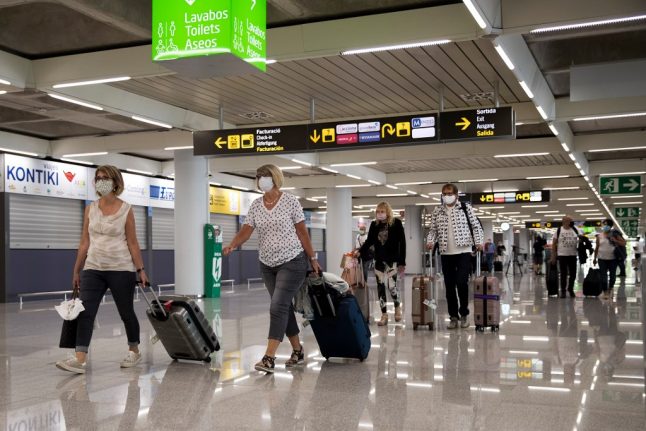After days of talks, EU envoys on Friday agreed to propose a list of 14 countries to their national governments, with the United States, where the coronavirus is still spreading, to remain excluded.
Croatia, which currently holds the EU's rotating presidency, requested that countries offer feedback by Saturday at 1600 GMT, with hopes the matter could then be put to a vote among the 27 member states.
“There are still ongoing consultations, which will continue until Monday,” an EU source told AFP.
“There is no visibility on where this will go, but the presidency still hopes to put this matter to a vote on Monday,” the source added.
The proposed “safe” list contains just 14 countries: Algeria, Australia, Canada, Georgia, Japan, Montenegro, Morocco, New Zealand, Rwanda, Serbia, South Korea, Thailand, Tunisia and Uruguay.
Crucially, travellers from China would be approved to enter, but under the condition that Beijing would do the same for Europeans.
Non-essential travel to the EU has been banned since mid-March, but only after member states closed their national borders in confusion and without coordination as the pandemic grew.
The restrictions are to be gradually lifted starting July 1, as the infection rate recedes — at least in Europe — and some countries hoped for close EU coordination.
Whatever is decided in Brussels will exist only as a recommendation since border control remains a national competence and a limited number of flights to and from banned countries have continued throughout the crisis.
Talks dragged on with some EU members wanting to limit the reopening to countries with an epidemiological situation “comparable or better” than that in the bloc — that is with 16 or fewer cases of Covid-19 per 100,000 inhabitants over the past two weeks.
Under that criteria, travellers from the United States, Brazil and Canada would remain banned.
READ MORE: American tourists could be barred from Europe when borders reopen
However, the health-based criteria has collided with geopolitics, with some countries reluctant to collectively ban the US while welcoming visitors from China, where the pandemic began.
The United States is currently the country most affected by Covid-19 with more than 125,000 deaths — while Europe believes it has passed the peak of its outbreak.



 Please whitelist us to continue reading.
Please whitelist us to continue reading.
Please hold the line EU and do not allow travellers from the USA. They might be the richest and most powerful country in the world but the virus is out of control there.
It seems to me it would be more effective and safer for Europe if all visitors were required to show they tested negative within three days of boarding their flight and were tested again upon arrival. Charge 50 Euros per passenger for testing upon arrival but don’t shut out all Americans just be because of residency.
Regardless of the tourism, I’m just hoping Germany can open to those with Type D visas. Was supposed to move in April, been bouncing around friends places for 2 months now on the verge of needing to sign a new lease. Life in limbo sucks. Sold all of my furniture and living out of boxes, please let me start building a life again before I go crazy haha.